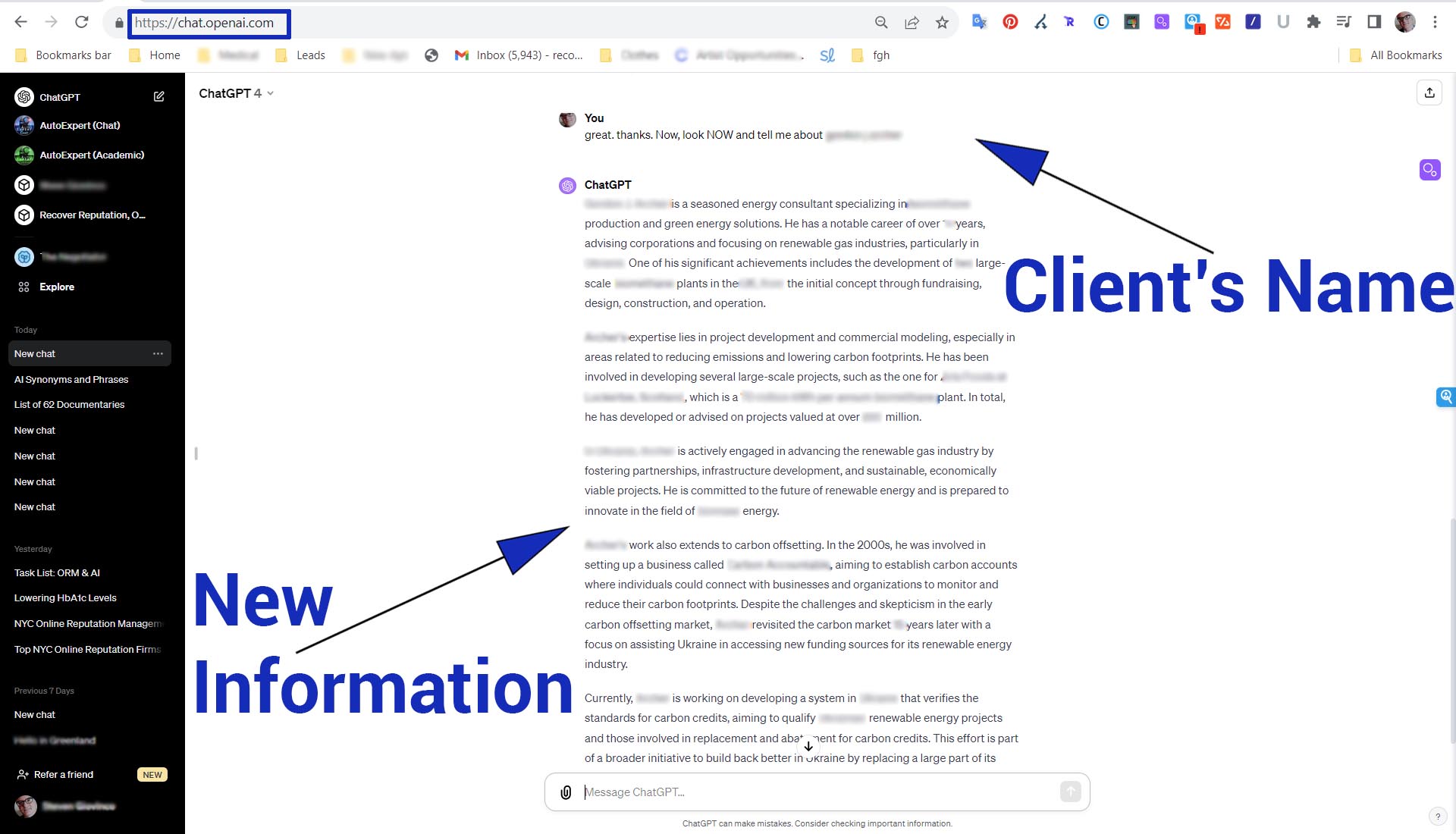Last Updated on August 3, 2023 by Steven W. Giovinco
Negative Links Appear Prominently in Google Searches
A potential online reputation management client reached out to me asking for help. They are an art dealer (although I’ve seen the same exact issue crop up for CEOs, high-level executives, law firms, mid-size businesses, financial advisors, doctors, etc.) who have several negative links appearing prominently on the first page of Google searches due to damaging posts created by a disgruntled previous work associate.
Sadly, this is all too common.
Issue Evaluation
During the initial consultation, we evaluate the online reputation issue together. I do this right at the start before going any further because there are times when I have to turn down cases due to the scope, lying outside my expertise, or is just a bad match. If I don’t think I can solve their reputation management issue, I honestly say so.
If it is something I can help with, I estimate what it takes to solve. For example, would it be a relatively quick case, lasting a month, or does it require a year of sustained work? And related, how much does it cost–a $1,000 flat fee to remove a false review or $5,000 per month?
How to Calculate Severity of Reputation Issue
There are several factors that go into calculating the severity of a reputation problem. These include:
- Position: Negative links appearing at the top of Google search results are much more difficult to fix than ones at the bottom.
- Quality: New York Times, HuffPost, Wall Street Journal articles, or one with perceived trust, are harder than a personal blog.
- Quantity: Multiple links require additional effort.
- Comments: Responses or comments posted on pages tend to substantially extend the repair process.
- Age: The more recent the issue, the easier it is to move.
- Movement: Shifting of links up or down over several months are an important indication of severity.
Each of these items have their own significance, but I want to focus on the last one–”movement”.
Are Links Moving Over Time?
Do the links gravitate upwards over a period of time or tend to shift down? Detecting trends is an important way to assess the reputation damage and the effort required to fix it.
So with that in mind, let’s go back to a real-world example–my potential client. Their issue is four negative links written by a disgruntled ex-employee, which were stable. However, not moving at all might not be a good thing (but it could have been worse). During the last three months, I’m told the damaging posts did not shift at all in any direction; rather, they still showed up on the first, third, fourth and fifth positions in searches.
My sense is that the reputation case would be a bit more complex and difficult.
Links Tend to Rise–Not Fall
In most cases, links tend to rise over time and unless online reputation repair tactics are applied, they rarely fall. The main reason is because as people see damaging links, they tend to click out of curiosity. This in turn makes them ever more prominent, causing a vicious cycle: the more they are clicked on, the more they move up. It also means that the link(s) stay where they are for a long period of time and rarely move down on their own.
So, if you have reputation problems developing but are still buried on the third, fourth or more pages of Google searches, monitor the situation because they are probably on the rise. If you see any movement, be preemptive and start building a positive online reputation. This in itself is a long-term process, often taking six months or more for most cases, but it’s much easier to stop bad content from moving up rather than trying to push it down.



